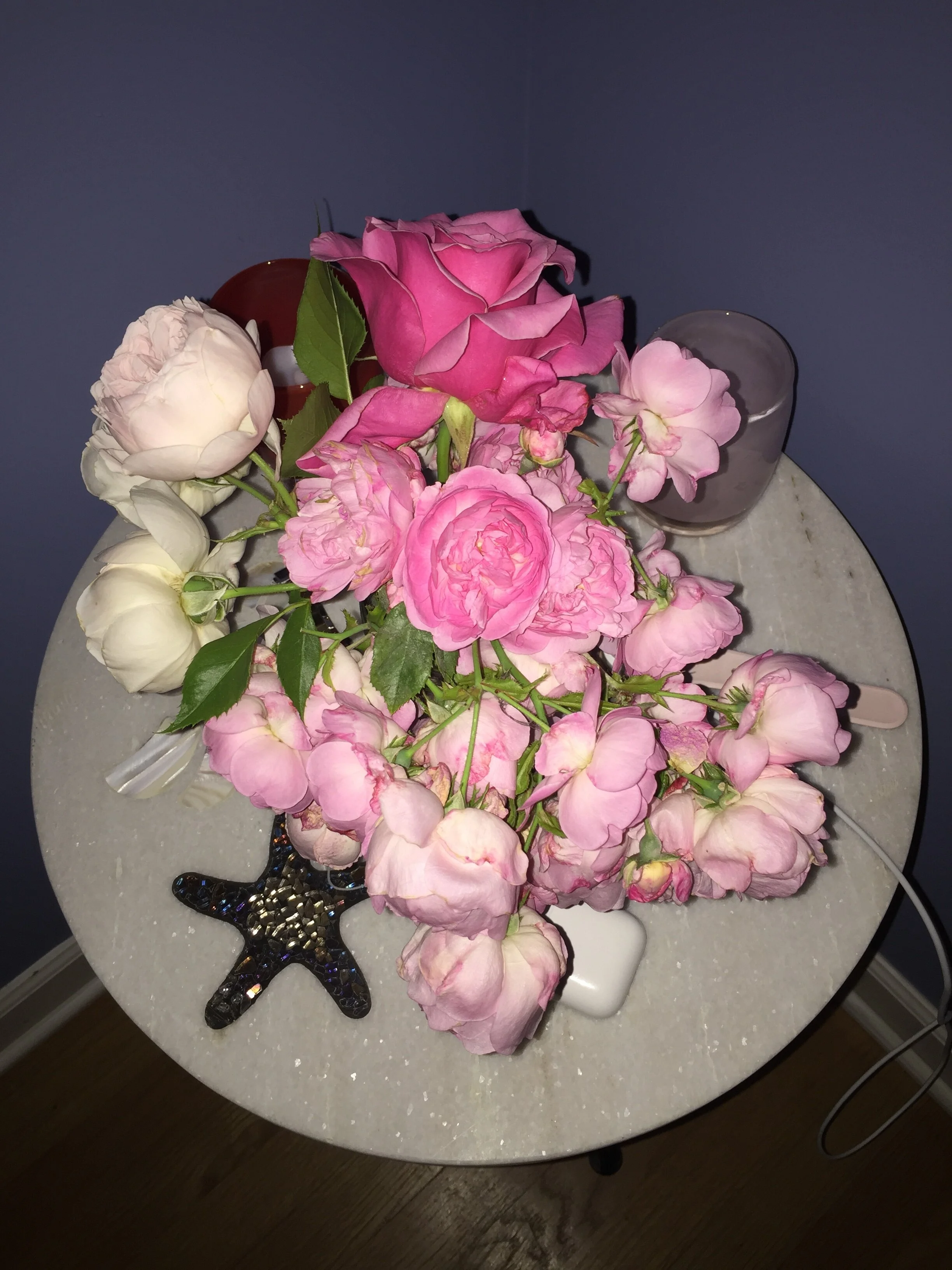How Do You Find Your Purpose?
/I hear the bird song of "More purpose, please" everywhere.
At a women's professional brunch I watch an architect across the room talk about her burnout from working long hours for too many years. "I need to figure out what I want to do next," she says with a shrug.
There's the discovery session one Monday morning with a broker and old friend who leans forward in my leather sofa and talks about a desire to re-invent himself in his fifties. I can feel how much he wants to do work that is fresh and new, with more human interaction; more in line with who he is now, rather than the person who chose his career in the 1980s.
I have Friday afternoon coffee downtown with a former boss. We talk about the tricky formula of "getting it right"--landing the right job at the right company with the right people aligned with the right values doing work you halfway give a sh* about. Phew! It sounds like a million-piece puzzle and an MI5 code to crack! But the intent is so hopeful and pure, even.
Today I'm emailed a Psychology Today article titled, What Does It Mean to Have Passion and Purpose? The piece talks about "ikigai"--a Japanese concept that points to what makes a complete and meaningful life. Ikigai is a Venn diagram model that shows what you need to attain the sweet spot of life fulfillment.
Is Purpose a Pipe Dream?
This World Economic Forum article on ikigai sheds more life on what it means to strive for and attain this sense of a life worth living state. To start, you can answer the following questions:
- What do you love?
- What are you good at?
- What does the world need from you?
- What can you get paid for?
TRY THIS:
Don't over think these. Let yourself either make lists for each question, or do a round of these questions five times. Play with it. See what you discover. You can answer the questions in the context of just your career. But what's more interesting and revealing is to answer these questions in the context of your whole life. Because what you love and what you're good at in your whole life all point to something.
What Non-Work Passions Tell Us (Hint: Values)
Let's say you LOVE gardening. And that's the only activity you love right now in your life, which frustrates you in the search for work-meaning. This doesn't mean you have to go to horticulture school; maybe gardening just stays in the garden. However, a passion for gardening does tell you something about planting, nurturing, growing, creating. Maybe getting dirty. So if you can translate that to a working life that involves planting, nurturing (and being nurtured), growing and creative, getting your hands dirty, you can start identifying opportunities and roles that fill those boxes. In other words, your hobbies and interests are underlining your values in yellow highlighter pen all the time.
Purpose can be practical
The word purpose can be so . . . loaded. It makes me feel like I should be wearing a dusty Jesus robe and walking barefoot over undulating desert sand dunes, scorched and skinny, setting out to do something that will impact humanity.
Hell no. Purpose is found in the practicalities of daily life. They are whatever matter to you.
Life doesn't give you purpose. YOU GIVE YOU PURPOSE. (Aka, You are the boss of you.)
“Ikigai is not something grand or extraordinary. It’s something pretty matter-of-fact.”
Isn't it refreshing to think that your purpose can be simple and practical? The opposite of grand? Ikigai and purpose change throughout life. So whatever purpose you're hitching your life wagon to right now could be different next year or down the road in five years. So stay flexible with it!
Also: In case "loving what you do" hangs you up, go with a more neutral word. Instead of "What do I love?" you can ask "What do I like?" or "What am I into right now?"
What if you're living your purpose right now and don't even know it?
I have this hunch that more of us are living very close to a purpose and what might otherwise be known as a passion or a calling or a life we really really like than we realize. How could this be? For starters, it's our thinking. If you think what you're doing has purpose, it does. It's that simple. Remember: Circumstances are neutral, and only gain meaning through the way we think about them. So meaning and purpose is at your service every second of the day (I know it feels impossible sometimes).
Secondly: We live in a culture of complaint. We live in a culture where, despite happiness being an American idealistic birthright, we also agree to suffering and feeling miserable in our pursuit of this poetic happiness. We complain about our work. We complain to co-workers. We complain to friends about our family, spouses and kids. INNOCENTLY. We're looking for connection, and this is how we do it.
If I walk into a crowd and tell them I am having a great day, no one will ask me for more details.
If I walk into a crowd and tell them I'm having the crappiest day good golly they wouldn't believe what kind of sh*t is hitting the fan, well every head will turn and ask for details.
Not 100 percent of the time but more often than not.
So for this week, create your own ikigai venn diagram. Don't try to figure it out. Hang it up somewhere. What does it tell you? Create another one. What does THAT tell you?
Then, go to sleep and dream about penguins and butterscotch ice cream.











This blog is moving over to Beauty Hunter on Substack, and I’m taking you with me.